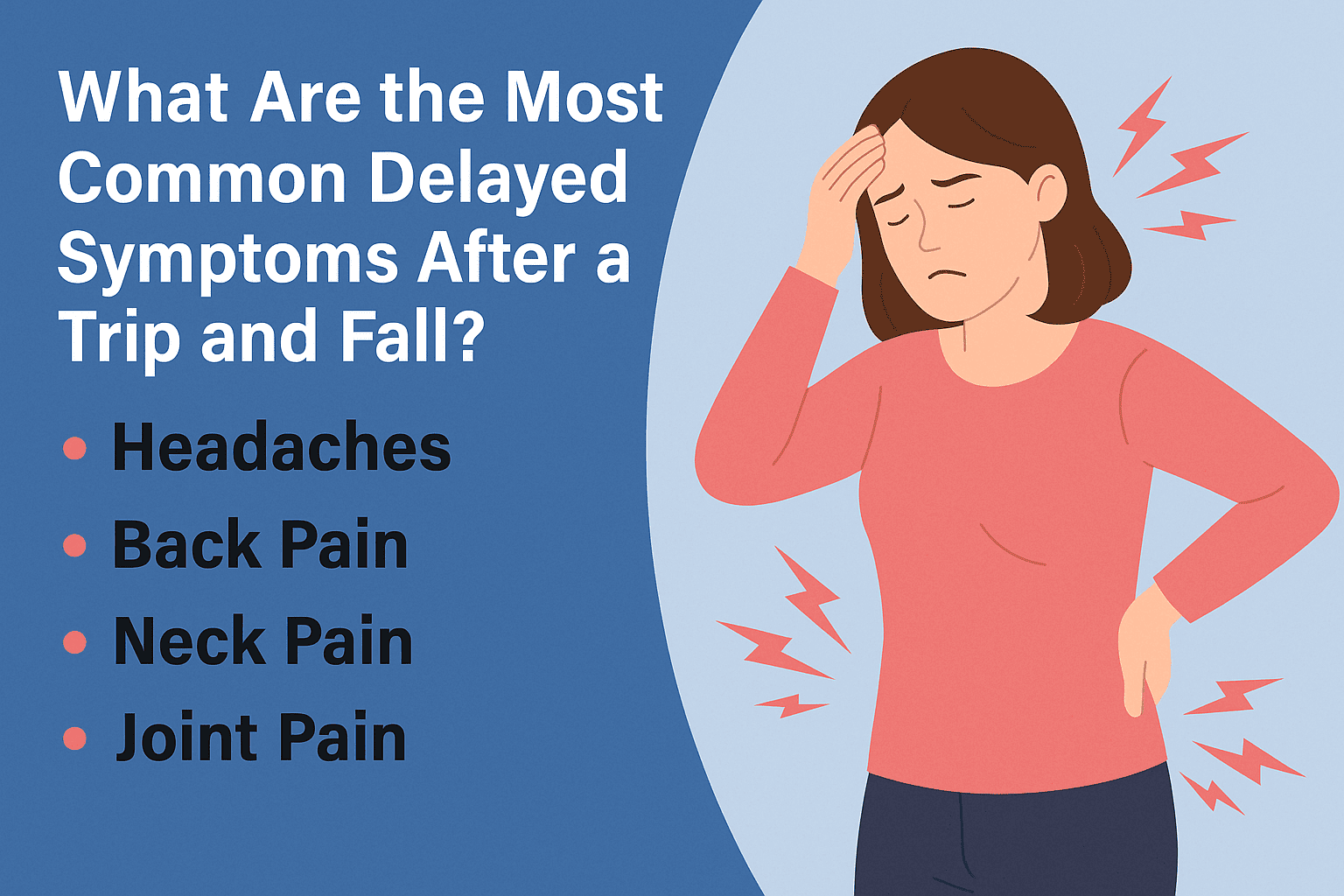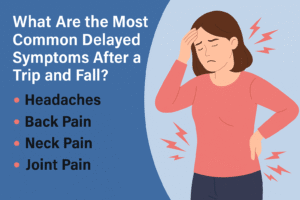What Are the Most Common Delayed Symptoms After a Trip and Fall?

Trip and fall accidents can seem minor at first. A person might feel a little sore but decide not to seek medical care right away. Sometimes, the pain comes hours or even days later. This delay can make it harder to connect the injury to the fall. Many people try to push through the discomfort, thinking it will go away. But some of these symptoms can point to serious problems. Recognizing delayed slip and fall symptoms early can prevent lasting damage. Paying attention to your body after a fall is always the smart choice. These symptoms may start small but can quickly become worse if not treated.
Table of Contents
Headaches That Don’t Go Away
A headache after a fall may not seem unusual, but it can be a sign of something more serious. Falls can cause head injuries, including concussions or even internal bleeding. If the headache lingers or gets worse, it should not be ignored. Some people also experience dizziness or blurred vision along with the pain. These signs might mean the brain was affected. A doctor can check for swelling or bleeding with scans and other tests. Getting help early can make a big difference in recovery. Waiting too long can lead to long-term health issues.
Neck and Back Pain That Gets Worse
It is common to feel sore after falling, especially in the neck or back. But if the pain gets stronger or spreads, it could point to a spinal injury. Slipped or herniated discs are often the result of hard landings during a fall. These injuries might not hurt right away but can start to limit movement after a day or two. In some cases, people feel numbness or tingling in their arms or legs. That is a sign the nerves may be affected. These types of injuries need medical attention to prevent further damage. Simple rest may not be enough to fix the problem.
Abdominal Pain or Internal Discomfort
A hard fall can also hurt the internal organs. Pain in the stomach area may appear later and often feels like a dull ache. This can be a sign of internal bleeding, especially if it is paired with dizziness or nausea. These symptoms are often missed in the first few hours after an accident. Internal injuries are dangerous and should be checked by a doctor as soon as possible. Ignoring the signs can lead to serious health risks. Even if there are no bruises or marks, the damage can still be there. It is always safer to get a full medical checkup after a fall.
Mood Changes and Trouble Sleeping
Not all symptoms are physical. Some trip and fall victims notice changes in their emotions or sleep habits. Mood swings, anxiety, or trouble focusing can appear days after the fall. These issues are sometimes tied to head injuries or stress from the accident. Sleep problems like waking up often or feeling tired all day can also signal that something is wrong. These symptoms may seem unrelated but can point to deeper issues. They should be taken seriously and shared with a doctor. Getting the right treatment can help both the body and mind recover fully.
Swelling and Bruising That Appear Late
After a fall, bruises and swelling may take time to show up. These signs often appear after the first day and can continue to get worse. If swelling does not go down or causes sharp pain, it may be linked to a deeper injury. Broken bones or torn muscles can sometimes hide behind what looks like a simple bruise. When swelling limits movement or makes it hard to use a limb, it is time to get help. Doctors can run tests to see if anything inside was hurt. Proper treatment helps speed up recovery and prevents lasting problems.
Delayed symptoms after a trip and fall can be easy to miss, but they should never be ignored. What seems like a small issue today could grow into something serious tomorrow. Headaches, back pain, stomach discomfort, mood shifts, and late bruising all deserve attention. These signs often appear after the shock of the fall wears off. Getting checked by a doctor, even if you feel fine at first, is one of the best steps you can take. Early care helps catch hidden injuries before they get worse. Legal advice may also be helpful if the fall happened due to someone else’s carelessness. Protecting your health starts with knowing what to look for and acting quickly when problems arise.









